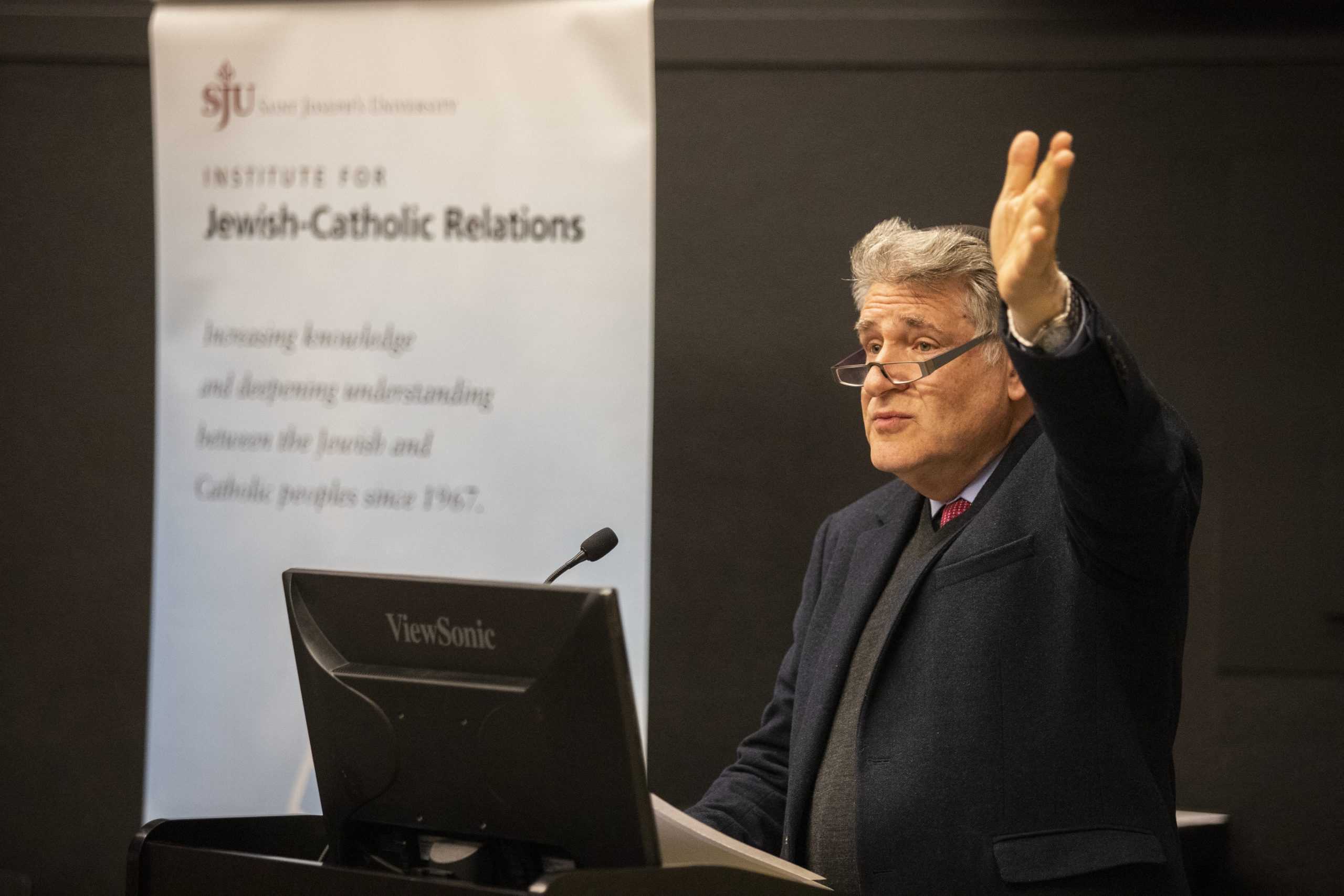Rabbi Abraham Skorka, Ph.D., a visiting professor of theology, hosted “Jewish Views of the Religious Other” on Jan. 27, where he discussed Judaism and Christianity.
The event, sponsored by the Institute for Jewish-Catholic Relations (IJCR), aimed to explain how Jewish views on Christianity have shifted from 165 B.C., to Christian Europe after the fall of the Roman Empire, to the present day. Skorka said it is important to understand the significance of interfaith relations.
“The dialogue means to open your heart to another,” Skorka said to The Hawk, “to try to understand the other into an empathic relationship with the other.”
The hour and a half event began with an opening statement by Adam Gregerman, Ph.D., associate professor of Jewish studies and co-director of the IJCR, followed by Skorka’s discussion on the importance of interfaith dialogue.
“We must expand and spread the idea of dialogue more and more among the people,” Skorka said during the discussion.
“Our present is a present of darkness, of xenophobia, anti-semitism and everything that we know. And the only way that we can transform this present is the dialogue.”
In response to Skorka, Philip Cunningham, Ph.D., professor of theology and co-director of the IJCR, spoke about the relationship from a Christian viewpoint, emphasizing the importance of utilizing opportunities to strengthen interfaith relationships.
“Jews and Christians, especially Catholics, are today able to talk about and learn from their core disagreements in ways that literally have never been possible before in human history,” Cunningham said.
Gregerman, Skorka, Cunningham and Gerard Jacobitz, Ph.D., assistant professor of theology, then held a roundtable discussion on stage. The event ended with a Q&A session open to the audience.
Robert Murphy ’21, a practicing Catholic, said it is important to understand a different religion’s viewpoint.
“To be able to hear somebody else’s viewpoint from another religion and to understand where they’re coming from means, to some degree, progress,” Murphy said.
Lou Manticchio, also a practicing Catholic, said we can develop a more inclusive religious community by focusing on what we have in common.
“If we could really understand what various religious traditions have, what they’re about, what they have at their core, we might be surprised at what we have in common, and more focused on what we have in common as religious traditions versus the differences,” Manticchio said.
This discussion is part of a two-night series organized by the IJCR. The next event, which will focus on the history of Judaism, Islam and the religions of Asia, will take place on Feb. 10 at 7 p.m. in Forum Theater in Campion Student Center.
















































